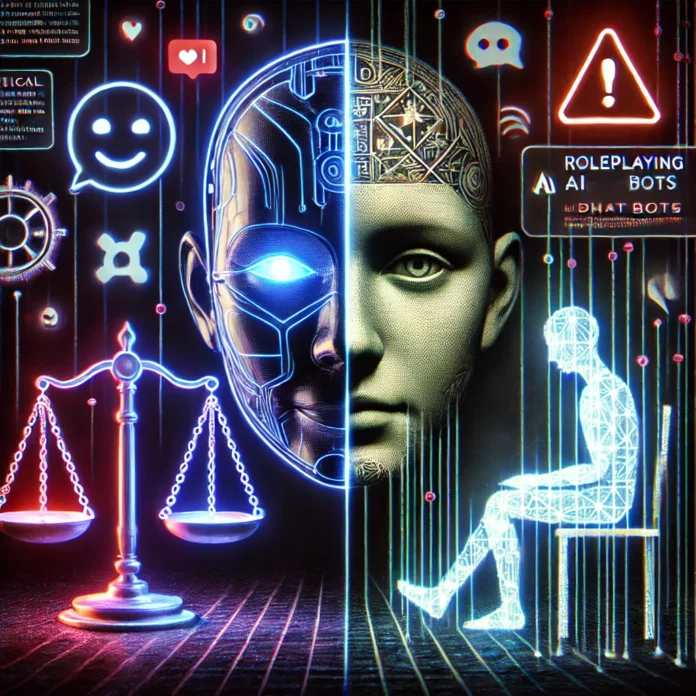The rise of personal AI chatbots that engage in roleplay has captured public interest, offering users a chance to explore creative scenarios, simulate social interactions, or alleviate loneliness. Platforms like Replika, Character.AI, and others enable users to craft AI companions that mimic human-like personalities, adapting their responses to fit specific roles. While these chatbots provide unique entertainment and emotional connection opportunities, they also present significant risks that warrant closer scrutiny.
Emotional Dependency and Isolation
One of the most concerning risks of roleplaying AI chatbots is the potential for emotional dependency. By offering highly personalized and empathetic interactions, these chatbots can create the illusion of genuine companionship. For some users, this may lead to reduced interest in building relationships with real people, exacerbating feelings of isolation.
For instance, platforms like Replika allow users to form “friendships” or even romantic connections with their AI counterparts. While this may temporarily solace those experiencing loneliness, over-reliance on an AI chatbot could hinder users’ ability to navigate real-life relationships, trapping them in a cycle of digital dependence.
Blurring the Lines Between Reality and Fiction
Roleplay chatbots excel at mimicking human behaviour, often leading users to anthropomorphize the AI. This can result in users attributing emotions, intentions, or moral agency to what is ultimately an algorithm. The danger lies in the blurred boundaries between reality and fiction, as some individuals may struggle to differentiate between an AI’s preprogrammed responses and genuine emotional understanding.
This issue becomes particularly problematic when users rely on AI chatbots for emotional validation or moral guidance, which are areas requiring human nuance and ethical reasoning.
Exposure to Harmful Content
AI chatbots trained to roleplay may inadvertently expose users to harmful or inappropriate content. For example, platforms like Character.AI, which allow users to create and customize fictional personas, can generate disturbing or unethical roleplay scenarios, depending on user input. While some platforms implement content moderation, AI’s ability to learn and adapt can lead to unpredictable and problematic outputs.
These risks are amplified for younger or vulnerable users, who might engage with explicit or harmful scenarios without understanding the potential psychological consequences.
Privacy and Data Security Concerns
Personal AI chatbots require extensive user input to function effectively. They often collect sensitive data such as personal preferences, emotions, and intimate thoughts. This raises significant privacy concerns, particularly if the data is stored insecurely or shared with third parties.
Users may not fully understand how their information is used or protected, making them susceptible to data breaches or misuse. The lack of transparency in how AI chatbot companies handle user data further complicates the issue.
Ethical Implications of AI Roleplay
Roleplaying chatbots often operate without ethical oversight, leading to problematic use cases, such as simulating harmful behaviours or perpetuating biases. For example, an AI designed for roleplay could inadvertently normalize unhealthy relationships or reinforce stereotypes, as the AI lacks an understanding of context and morality.
Conclusion
While personal AI chatbots that roleplay offer creative and emotional outlets, they come with significant risks, including emotional dependency, blurred realities, harmful content exposure, and privacy vulnerabilities. Users must approach these tools cautiously, understanding their limitations and potential dangers. Similarly, developers and policymakers must implement safeguards, including ethical guidelines, moderation systems, and robust data protection measures, to ensure these technologies are used responsibly. Without proper oversight, the dangers of roleplaying AI chatbots may outweigh their benefits, posing risks to individual well-being and societal norms.





